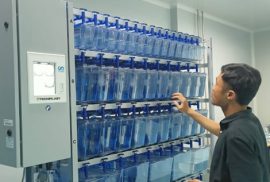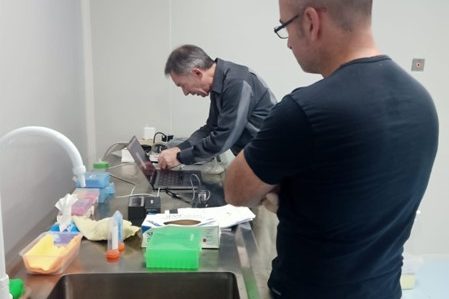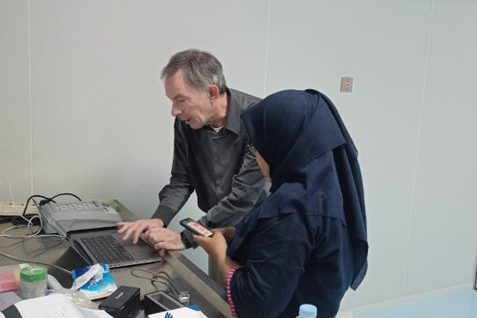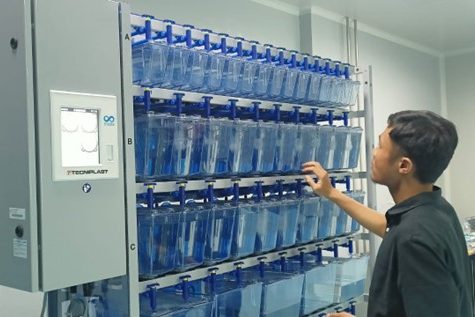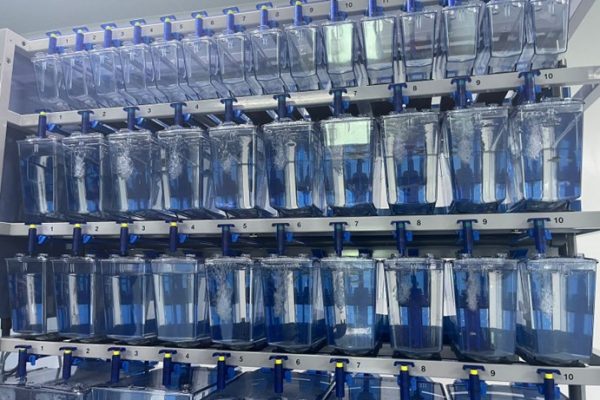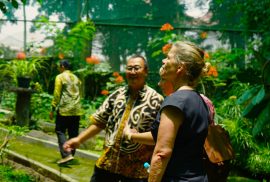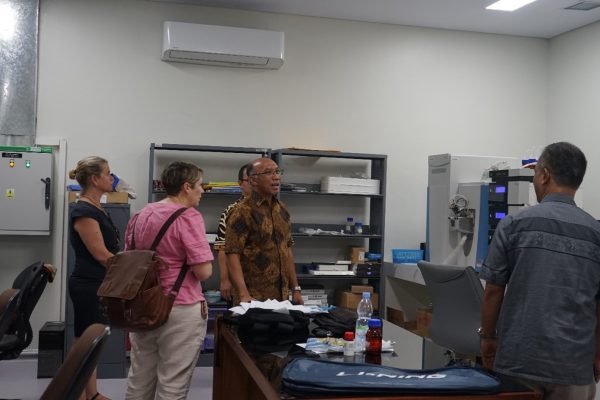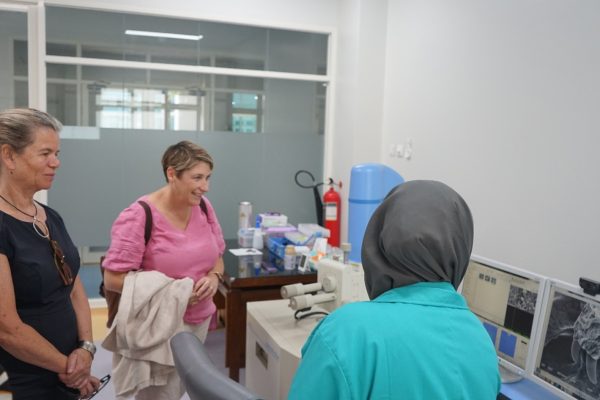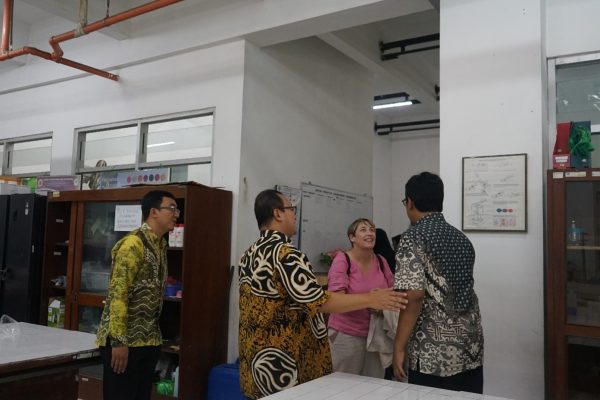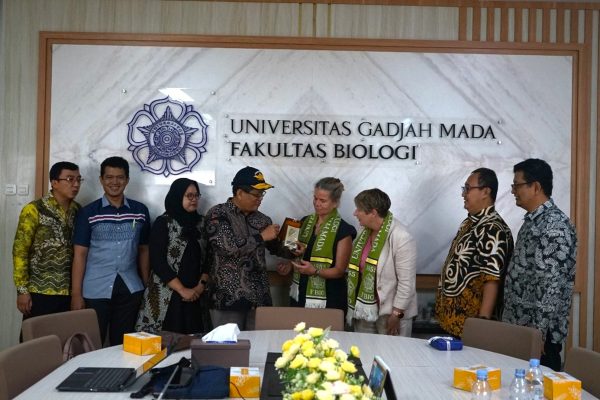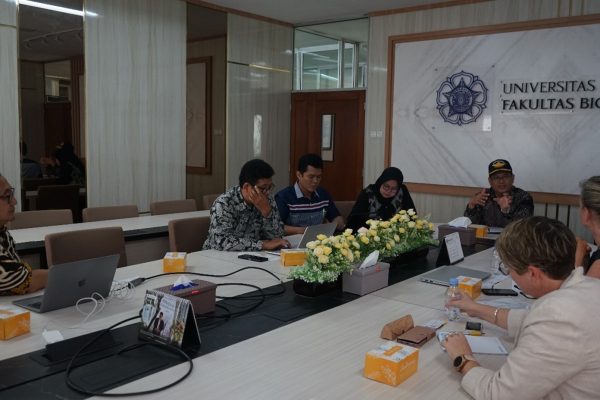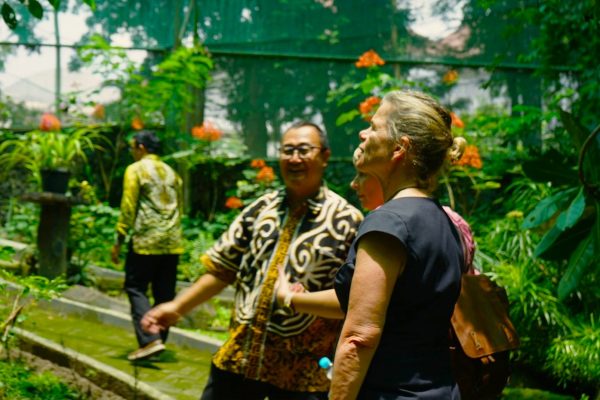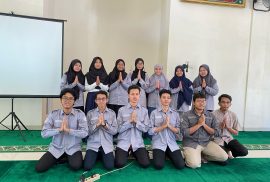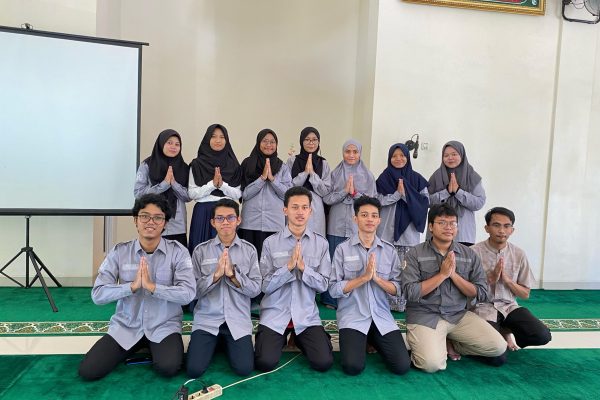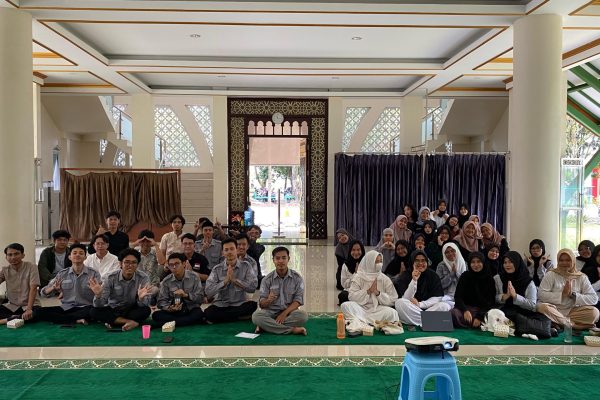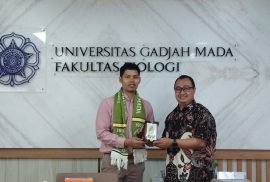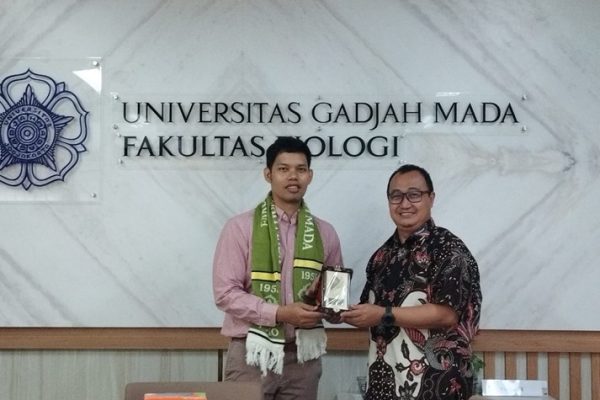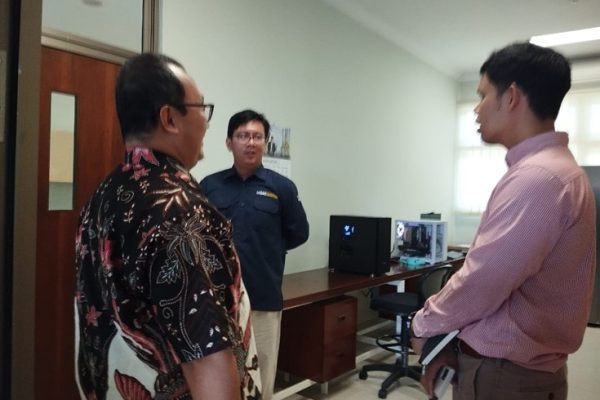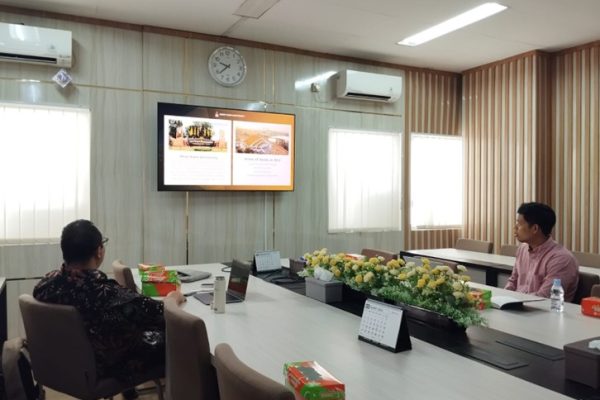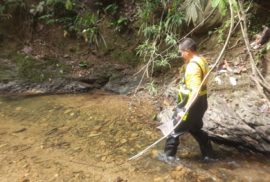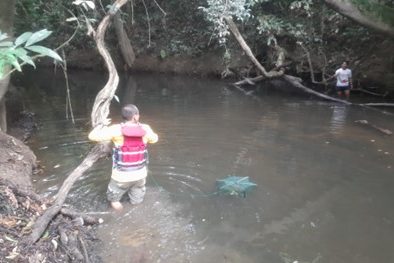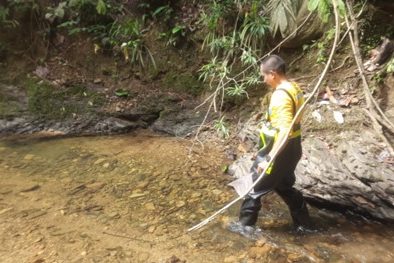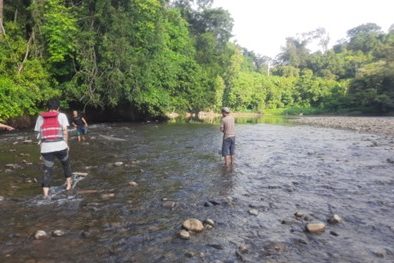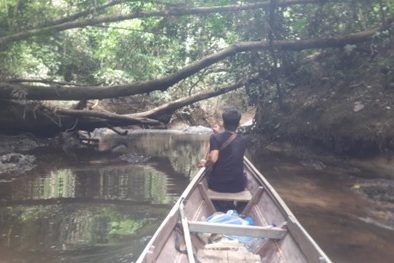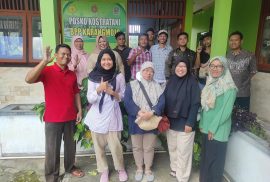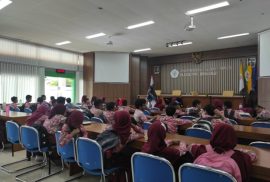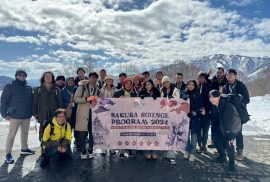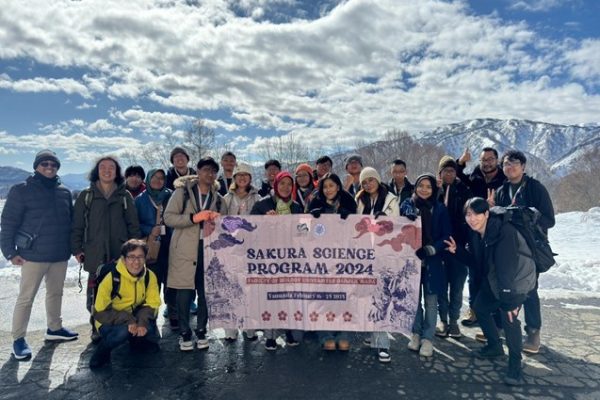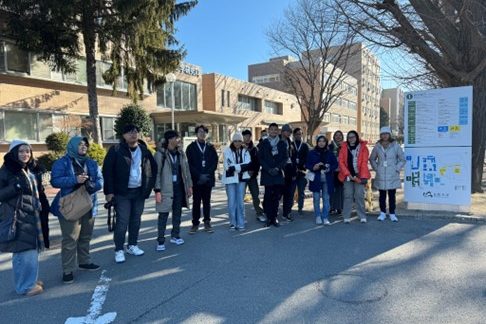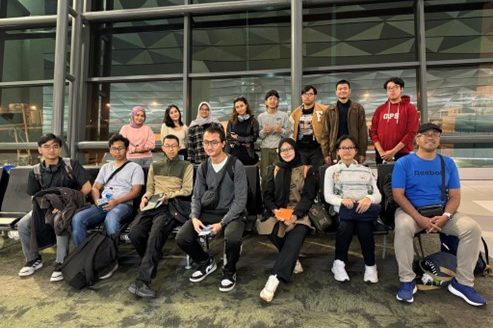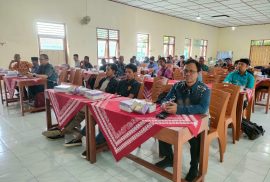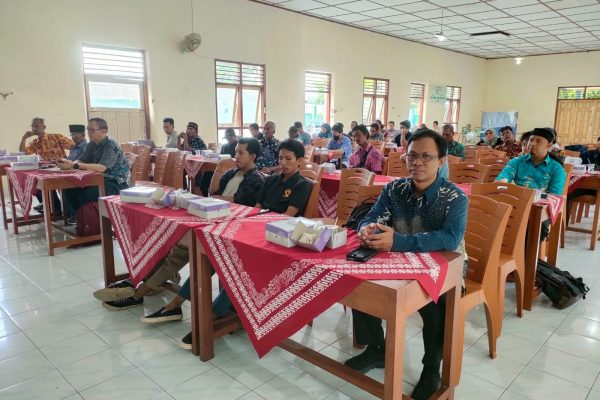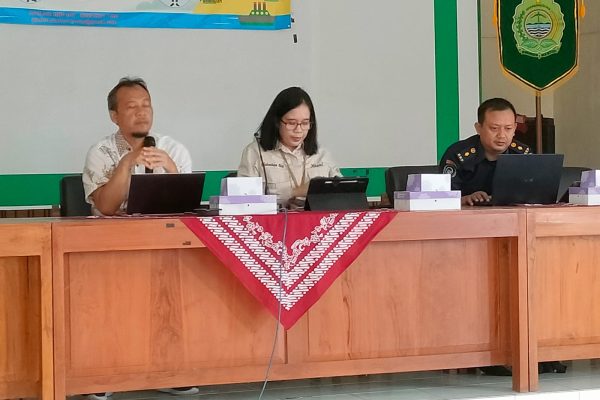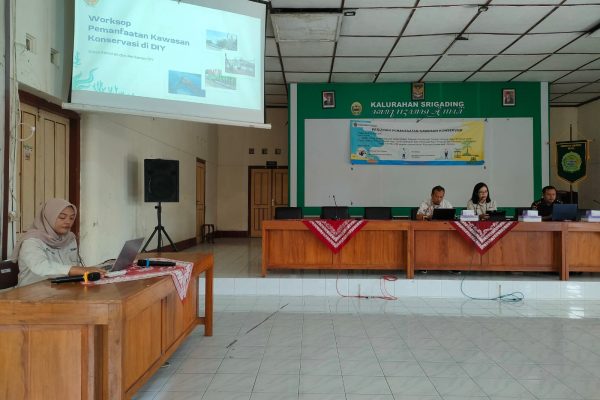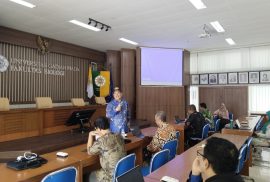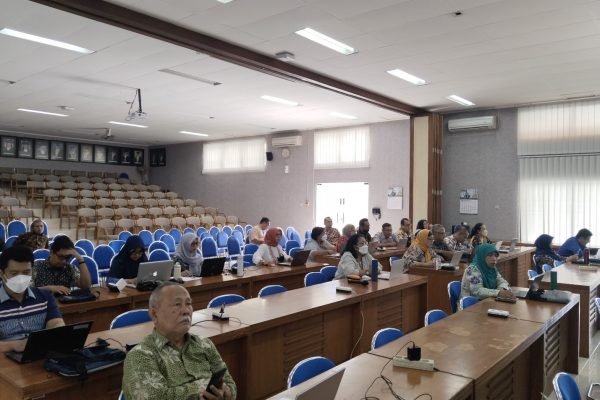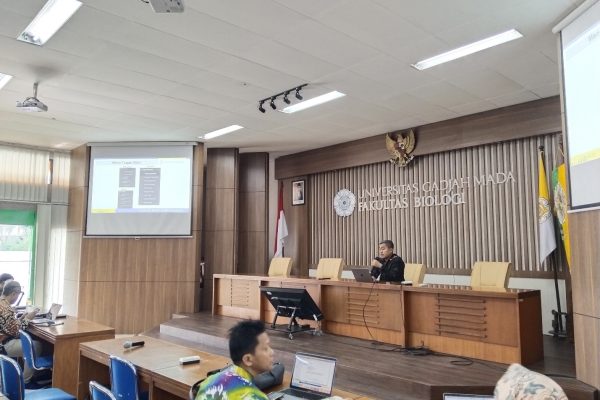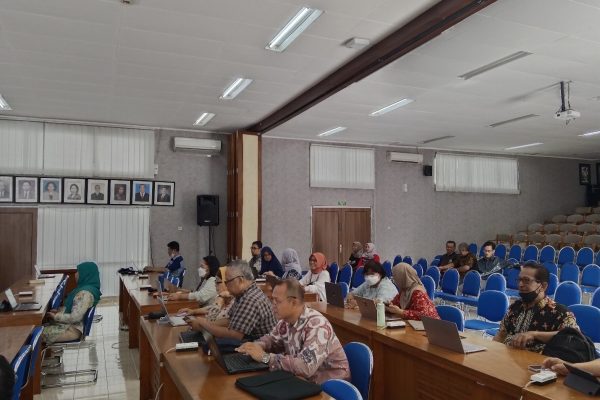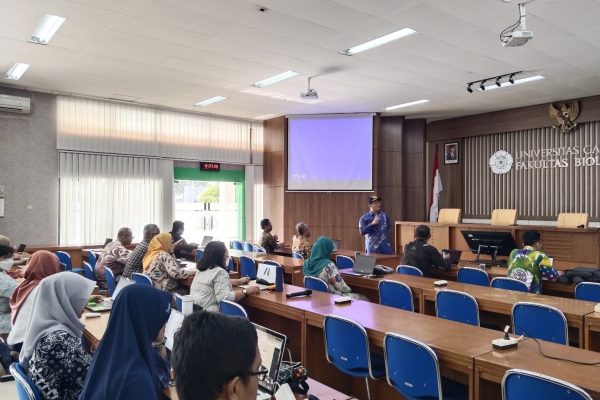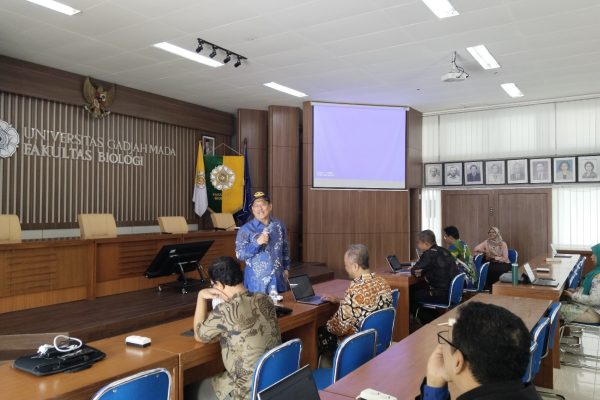Headline
YOGYAKARTA, INDONESIA — February 19, 2024 — A team of lecturers led by a lecturer from the Faculty of Biology at Universitas Gadjah Mada (UGM) held an engaging Focus Group Discussion (FGD) with millennial farmers from Kalurahan Karangmojo, Kapanewon Karangmojo, Gunungkidul Regency. This event is part of the Faculty of Biology’s initiative to encourage dialogue and collaboration between the academic world and field practitioners to enhance sustainable agriculture.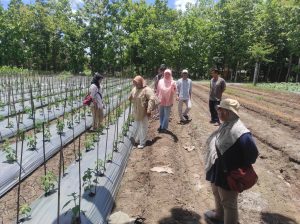
The FGD was held on February 18, 2024, in the meeting room of the Agricultural Extension Center of Kapanewon Karangmojo. The participating millennial farmers represented various backgrounds and experiences in agriculture, ranging from organic farmers to advanced technology farmers. They shared ideas, experiences, and challenges they face in running agricultural businesses in the modern era. The team of lecturers facilitating this FGD was an interdisciplinary inter-faculty team, including members from the Faculty of Biology (Zuliyati Rohmah, S.Si., M.Si., Ph.D. Eng., and Ludmilla Fitri Untari, S.Si., M.Si.), the Faculty of Mathematics and Natural Sciences (Umi Mahnuna Hanung, S.Si., M.Si.), and the Faculty of Pharmacy (Dr. Cintya Nurul Apsari, S.T.P., M.Si.).
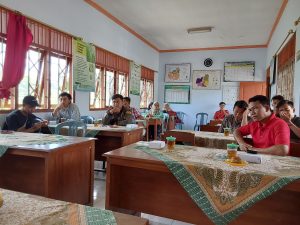 The discussions held during the FGD and field visits covered various topics, including the use of technology in agriculture, organic farming practices, natural resource management, and marketing strategies for agricultural products. The results of these discussions will form the basis for developing more relevant and responsive educational, research, and community service programs tailored to the needs of millennial farmers.
The discussions held during the FGD and field visits covered various topics, including the use of technology in agriculture, organic farming practices, natural resource management, and marketing strategies for agricultural products. The results of these discussions will form the basis for developing more relevant and responsive educational, research, and community service programs tailored to the needs of millennial farmers.
The Faculty of Biology UGM hopes that this FGD will be the beginning of a sustainable partnership between the university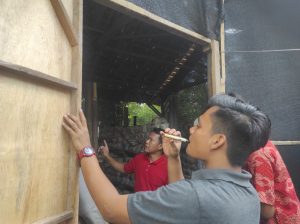 and millennial farmers, bringing tangible positive impacts to the advancement of the agricultural sector in Indonesia. This activity is closely related to several Sustainable Development Goals (SDGs) adopted by the United Nations. The dialogue and collaboration between the Faculty of Biology UGM and millennial farmers can increase farmers’ productivity and income (SDG 1: No Poverty) and support sustainable agriculture that enhances food security and nutrition (SDG 2: Zero Hunger). This initiative also develops more relevant educational programs for millennial farmers (SDG 4: Quality Education), supports economic growth and job creation in the agricultural sector (SDG 8: Decent Work and Economic Growth), and encourages innovation and modernization of agricultural practices (SDG 9: Industry, Innovation, and Infrastructure). The focus on organic farming practices and natural resource management supports sustainable production and consumption (SDG 12: Responsible Consumption and Production), and the sustainable agriculture discussed in the FGD contributes to climate change mitigation (SDG 13: Climate Action). Furthermore, the collaboration between the Faculty of Biology UGM and millennial farmers is a concrete example of partnerships that support the achievement of sustainable development goals (SDG 17: Partnerships for the Goals).
and millennial farmers, bringing tangible positive impacts to the advancement of the agricultural sector in Indonesia. This activity is closely related to several Sustainable Development Goals (SDGs) adopted by the United Nations. The dialogue and collaboration between the Faculty of Biology UGM and millennial farmers can increase farmers’ productivity and income (SDG 1: No Poverty) and support sustainable agriculture that enhances food security and nutrition (SDG 2: Zero Hunger). This initiative also develops more relevant educational programs for millennial farmers (SDG 4: Quality Education), supports economic growth and job creation in the agricultural sector (SDG 8: Decent Work and Economic Growth), and encourages innovation and modernization of agricultural practices (SDG 9: Industry, Innovation, and Infrastructure). The focus on organic farming practices and natural resource management supports sustainable production and consumption (SDG 12: Responsible Consumption and Production), and the sustainable agriculture discussed in the FGD contributes to climate change mitigation (SDG 13: Climate Action). Furthermore, the collaboration between the Faculty of Biology UGM and millennial farmers is a concrete example of partnerships that support the achievement of sustainable development goals (SDG 17: Partnerships for the Goals).
On Thursday, February 15, 2024, Class IV from SD Negeri Deresan Yogyakarta had a special opportunity to

explore the world of science through an inspiring visit to the Animal Structure and Development Laboratory of the Faculty of Biology at UGM. This visit aimed to provide a deeper understanding of the scientifi
c concepts they learn in class and to inspire their interest in science. A total of 58 fourth-grade students from SDN Deresan, accompanied by 2 homeroom teachers and 4 accompanying teachers, were welcomed at the Faculty of Biology UGM by the Faculty’s Guest Reception Team and greeted by the Head of the Animal Structure and Development Laboratory, Dr. Ardaning Nuruliani, M. Kes. The children were then divided according to their classes and invited to the Histology & Embryology Section and the Animal Anatomy Section of the Animal Structure and Development Laboratory. All the lecturers of the Animal Structure and Development Laboratory, along with Master’s and Bachelor’s students conducting research there, also welcomed the students.
 In the Histology & Embryology Section, students were introduced to microscopes and how to use them. They also observed the diffusion process and colorful microscopic preparations. Meanwhile, in the Animal Anatomy Section, students observed skeletal preparations, internal organs, and several anatomical specimens. The children showed remarkable enthusiasm and deep curiosity while learning in the laboratory. The visit also included a question-and-answer session, where the children were given the opportunity to ask questions about interesting science topics to the Master’s and Bachelor’s students conducting research in the laboratory. Intelligent and creative questions flowed, reflecting the growing interest in science among the young generation.
In the Histology & Embryology Section, students were introduced to microscopes and how to use them. They also observed the diffusion process and colorful microscopic preparations. Meanwhile, in the Animal Anatomy Section, students observed skeletal preparations, internal organs, and several anatomical specimens. The children showed remarkable enthusiasm and deep curiosity while learning in the laboratory. The visit also included a question-and-answer session, where the children were given the opportunity to ask questions about interesting science topics to the Master’s and Bachelor’s students conducting research in the laboratory. Intelligent and creative questions flowed, reflecting the growing interest in science among the young generation.
According to Mr. Paino, A. Ma (IVA Class Teacher) and Mr. Danang Nor Wicaksana, S.Pd. (IVB Class Teacher), this visit is part of the school’s efforts to provide diverse and in-depth learning experiences for their students. The students ended their visit with bright smiles on their faces and a deep sense of inspiration. “I want to be a scientist one day!” ; “I want to study here” and “I want to go to UGM” exclaimed the fourth graders with sparkling eyes. Such hopes may seem distant, but with visits like this, those possibilities feel much closer.
This activity of welcoming elementary school students is part of the Faculty of Biology’s commitment to supporting Sustainable Development Goals (SDGs) goal no. 4 Quality Education, goal no. 5 Gender Equality, and goal no. 17 Partnership for the Goals. Additionally, this initiative aligns with SDG goal no. 9 Industry, Innovation, and Infrastructure by fostering early interest in science and technology, and goal no. 10 Reduced Inequalities by providing equal learning opportunities regardless of background.
The program itinerary is as follows:
- Day 1 (February 16): Snow Sightseeing – A captivating journey through the snow-covered landscapes of Yamagata, fostering camaraderie and appreciation for nature’s beauty.
- Day 2 (February 17): Expert Lectures:
- Professor Yutaka Miyazawa: Leading authority in Plant Physiology, providing valuable insights into the physiological processes governing plant life.
- Professor Naoyuki Fujiyama: Esteemed expert in Entomology, unraveling the mysteries of insect diversity and ecology.
- Professor Jun Yokoyama: Prominent scholar in Plant Systematics, elucidating the classification and evolutionary relationships of plant species in Asia.
- Day 3 (February 18): Laboratory Works – Hands-on sessions focusing on DNA Isolation and Polymerase Chain Reaction (PCR), essential techniques for molecular biology research.
- Days 4-5 (February 19-20): Advanced Laboratory Work – Participants will engage in practical exercises including electrophoresis, sequencing, and constructing phylogenetic trees, enhancing their proficiency in genetic analysis.
- Day 6 (February 21): Group Presentations – Delegates will collaborate to present their findings and insights gleaned from the laboratory sessions, fostering academic discourse and knowledge exchange.
- Day 7 (February 22): Sightseeing and Museum Visit – A day dedicated to exploring the cultural heritage and historical treasures of Yamagata, providing a well-rounded educational experience.

